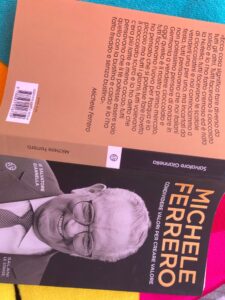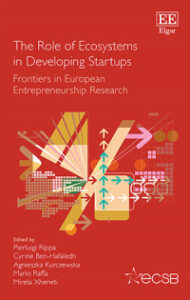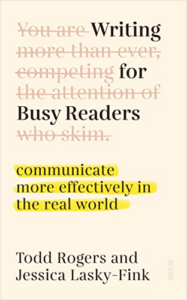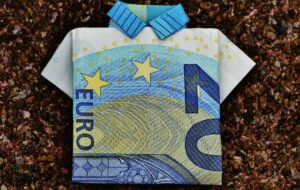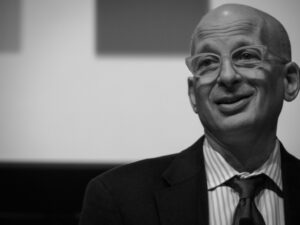
I was working on something else when an invitation I received on LinkedIn changed my plans. So, let’s start 2024 with a post that I never thought I would write. We are almost halfway through the century, but evidently, we are still dealing with what I define as relational illiteracy.
For privacy reasons, I’ll paraphrase and summarise the message I received attached to the invitation. It went something like this: “Hi, I am working on growing my professional profile. So, I wanted to add you to my connections because I wanted you to invite me as your guest lecturer in one of your classes.”
Straightforward, right? Now, nothing unusual, but this pairs up with another recent email I received from someone else that went something like this: “I have this job offer, I expect your references.” A vague recollection of the sender (unfortunately, we meet and work with dozens of people, nothing personal) and no details about the job.
👉 (Warning: Asking in advance for the availability to provide references is always wise. It’s a gesture of courtesy, a sign of kindness, at least considering that you’re borrowing someone else’s reputation, perhaps carefully and laboriously built over the years, navigating through rare highs and much more common lows.)
Still, nothing particularly wrong. But all of this pairs up with all those invitations that go like: “I am launching my business. Here’s the link to invest.” Or invitations on social media without a message (which is still okay) and then spamming about professional services, investment requests, etc. No, it doesn’t work like that. At least not for me, but I think I am in good company. And here’s why.
Let’s keep it simple: preliminaries matter.
They make all the difference. Let me explain this better. I always talk about this in class with my students working on their startups, who realise that the brand, the product, their personal brand, everything set up, finding an investor, mentors, etc., etc., etc., is all going great. Except that all these things have to deal with a huge obstacle: relationships. The fact that the digital era has lowered the entry barrier for the benefit of many, as evidenced by the success of crowdfunding, doesn’t mean that everything can be taken for granted.
And that if you don’t deliver, then you are a boomer. No, quite simply, we remain human. It’s not by chance, for example, that the most successful brands have a very close relationship with their customers and consumers (yes, there is still a difference).
The most enlightened entrepreneurs know this well and use social media to achieve what’s called “network effects” and therefore greater visibility, but then they seek in-person contact, and cultivate relationships with their customers/consumers/investors and so on. One by one, as my aunt did with her shop in the centre of her town. She knew the ins and outs of everyone’s lives and, also for that reason, had a better reputation than the mayor, who was just a temporary figure in the community life. Let me put it in the form of a to-do list, maybe the message will come across better:
- Choose what you want to do when you grow up.
- Identify your community.
- Be part of it, give your best and make yourself known.
- Then invite people to your table for a meal. (This is just a metaphor to say do something for others).
- Invite them again.
- And invite.
- Wait for them to invite you (if you’re lucky!).
- When they invite you, put on your best suit and give your best to be invited again.
- In the meantime, you’ll be the one inviting.
- Repeat.
Building your social capital takes time, consistency, and chemistry. Everything must flow naturally (which doesn’t mean smooth, without tears and effort). Ah! I almost forgot: patience. Endless. So, you need a lot of passion in what you do, otherwise, you cannot cope with all this.
As a person who invites, I can tell you, that there’s nothing BETTER than hearing back that “Yes!”
So, lesson #zero: never send a cold email or whatever you want to call it. Essentially, we are human beings. I could ask permission coldly. But I still have to be careful where I step in.
In the end, everything is a matter of conscious choice, as David Foster Wallace puts in This is Water, in my opinion, the best speech ever written about our default attitude to perceive situations as if they revolve around ourselves. Indeed, considering different angles, being empathetic, and paying attention are pivotal in life.
Happy 2024!
- SEO Powered Content & PR Distribution. Get Amplified Today.
- PlatoData.Network Vertical Generative Ai. Empower Yourself. Access Here.
- PlatoAiStream. Web3 Intelligence. Knowledge Amplified. Access Here.
- PlatoESG. Carbon, CleanTech, Energy, Environment, Solar, Waste Management. Access Here.
- PlatoHealth. Biotech and Clinical Trials Intelligence. Access Here.
- Source: https://thisisoliver.co/2024/01/02/the-art-of-relationship-building-in-the-digital-era/
- :has
- :is
- :not
- :where
- $UP
- 2024
- a
- About
- Achieve
- across
- add
- advance
- again
- All
- almost
- also
- always
- am
- an
- and
- Another
- ARE
- around
- Art
- AS
- ask
- asking
- At
- attention
- availability
- back
- barrier
- BE
- because
- being
- benefit
- BEST
- Better
- Borrowing
- brand
- brands
- Building
- built
- business
- but
- by
- call
- called
- CAN
- cannot
- capital
- careful
- carefully
- centre
- Century
- Chance
- changed
- chemistry
- choice
- class
- classes
- Close
- cold
- come
- Common
- community
- company
- Connections
- conscious
- considering
- Consumers
- contact
- content
- could
- Crowdfunding
- Customers
- David
- deal
- dealing
- define
- deliver
- details
- DID
- difference
- different
- digital
- do
- Doesn’t
- Dont
- dozens
- effort
- else
- Else’s
- embedded
- end
- Endless
- entrepreneurs
- entry
- Era
- essentially
- etc
- EVER
- everyone’s
- everything
- evidenced
- example
- Except
- expect
- Explain
- fact
- Figure
- Files
- finding
- flow
- For
- form
- Foster
- from
- gesture
- Give
- Go
- going
- good
- granted
- great
- greater
- Grow
- Growing
- Guest
- had
- halfway
- Have
- hearing
- her
- Highs
- HTTPS
- huge
- human
- i
- I’LL
- if
- in
- Invest
- investment
- investor
- invitation
- invite
- invited
- invites
- inviting
- IT
- Job
- just
- Keep
- Know
- known
- launching
- least
- lecturer
- lesson
- let
- Life
- like
- LINK
- List
- Lives
- Lot
- lowered
- Lows
- make
- many
- Matter
- maybe
- Mayor
- me
- mean
- meantime
- Media
- Meet
- mentors
- message
- more
- most
- much
- must
- my
- navigating
- Need
- never
- no
- nothing
- now
- obstacle
- of
- offer
- Okay
- on
- ONE
- Opinion
- or
- Others
- otherwise
- our
- over
- pairs
- part
- particularly
- paying
- People
- perhaps
- permission
- person
- personal
- pivotal
- plans
- plato
- Plato Data Intelligence
- PlatoData
- Post
- privacy
- Product
- professional
- Profile
- provide
- put
- Puts
- quite
- RARE
- reason
- reasons
- received
- recent
- references
- relationship
- remain
- reputation
- requests
- right
- say
- Seek
- send
- sender
- Services
- set
- she
- Shop
- sign
- Simple
- simply
- situations
- smooth
- So
- Social
- social media
- Someone
- something
- speech
- start
- Startups
- Step
- Still
- Students
- success
- successful
- Suit
- table
- taken
- takes
- Talk
- tell
- temporary
- than
- that
- The
- their
- Them
- then
- There.
- therefore
- These
- they
- things
- think
- this
- those
- thought
- Through
- time
- to
- town
- true
- unfortunately
- unusual
- use
- very
- visibility
- want
- wanted
- warning
- was
- we
- WELL
- went
- What
- whatever
- when
- which
- WHO
- why
- will
- WISE
- with
- without
- WordPress
- Work
- working
- would
- write
- written
- Wrong
- years
- yes
- you
- Your
- yourself
- youtube
- zephyrnet



